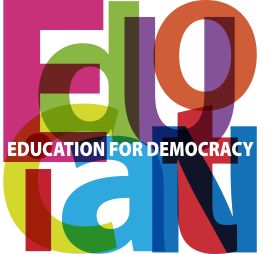FAQ
 Why democracy and intercultural dialogue?
Why democracy and intercultural dialogue?
Democracy depends on institutions and laws but democratic institutions and laws will not work in practice unless citizens have the appropriate attitudes and behaviours that make democracy work in practice. This is democratic culture, and its needs to be built a new in each generation and to be maintained. Democratic culture is not like riding a bicycle but like speaking a language: if you do not practise it, you will lose the ability. Democracy depends on democratic culture, and only through democratic culture can we support integration and inclusion. Therefore, education plays a key role in developing and maintaining a democratic Europe built on democracy, human rights and the rule of law.
 What is the aim of the project?
What is the aim of the project?
To describe the main competences citizens require in order to participate effectively in democratic society. The descriptors are intended as guidelines or references for member states, which can use and adapt them in their own education system, at all levels of education, as they see fit. They will be non-binding and it is worth underlining that countries have expressed support for this project at two plenary sessions of the Steering Committee for Educational Policy and Practice (CDPPE) and at the annual meeting of the network of coordinators for Education for Democratic Citizenship.
 Is there a model to build on?
Is there a model to build on?
The Council of Europe has developed the Common European Framework of Reference for Languages (CEFR). The model for competences for democratic culture and intercultural dialogue will be inspired by but not copy this. Notably, the work before us now is even more complex that the CEFR but it is still possible in part thanks to the experience with the CEFR.
 Who are the target groups?
Who are the target groups?
Education policy makers and practitioners, including ministries, schools and universities, teachers, teacher educators and curriculum developers.
 What are competences?
What are competences?
“Competences” describe what a person knows, understands and is able to do, as well as the person’s values and attitudes, i.e. not only what a person is able but also willing to do. Including values and attitudes is important because they may orient a citizen’s action: there are things we may be able to do but that we should, for moral and ethical reasons, refrain from doing.
 Can you give me an example of values?
Can you give me an example of values?
Two examples are respect and civic-mindedness.
 How do you describe competences?
How do you describe competences?
Competences will be described using a set of descriptors that can be used in schools, universities, and other education settings to review and develop curricula, study programmes and pedagogy required to help students become active democratic citizens and to assess their progress.
 Can you give an example of a descriptor?
Can you give an example of a descriptor?
For conflict resolution, descriptors may include:
- Listens to and understand the different perspectives of the parties involved.
- Can express and summarise the different points of views held by conflicting parties
- Can identify common ground on which agreement between conflicting parties can be built.
For valuing other human beings, human dignity and human rights:
- Respects the equal dignity of all human beings
- Demonstrates appreciation of the universal and inalienable nature of human rights
- Can recognise the common humanity of all people irrespective of their particular cultural differences.
For cooperation skills:
- When working on a group activity, ensures the equal participation of all
- When working cooperatively, supports other members of their group
- Considers the views of other people when analysing the situation.
 What competences will be included in the scheme?
What competences will be included in the scheme?
Those that relate specifically or at least mainly to democracy and intercultural dialogue. Many competences may relate to these but mainly to other purposes of education, such as preparation for employment. It is important that these competences be teachable and learnable – in other words that they can be developed through an educational process – and that they be assessable – in other words, that is possible to evaluate whether and to what degree a competence has been acquired.
 Where are we now?
Where are we now?
A model of 20 specific Competences for Democratic Culture has been submitted to international experts for feedback and work on a first set of descriptors will be completed by the end of May 2015. They will be tested over the summer period with the help of the Pestalozzi Programme for teacher training and the European Wergeland Centre. A number of Member States have also agreed to take part in an online survey on the descriptors.
The results of these two consultation exercises will be published at the end of 2015 and lead to the further refinement of the framework for more widespread testing in concrete education contexts in 2016.



